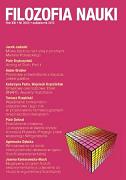Rozróżnienie mówienia i pokazywania w świetle krytyki koncepcji Russella i Fregego przez wczesnego Wittgensteina
The Saying/Showing Distinction in the Light of Early Wittgenstein’s Criticism of Russell and Frege
Author(s): Piotr DehnelSubject(s): Philosophy
Published by: Uniwersytet Warszawski - Wydział Filozofii i Socjologii, Instytut Filozofii
Keywords: language; logic; saying; showing; proposition; meaning
Summary/Abstract: I argue that the saying/showing distinction was a leitmotiv of Wittgenstein’s early criticism of some logical theories of Russell and Frege, although ascribing to Wittgenstein the general theory of ineffable truths on the basis of that distinction is at odds with his intentions in the Tractatus. Three points are noticed here. First, the saying/showing distinction functions effectively, and in fact is intelligible, only in the context of Wittgenstein’s critique of Russell’s theory of types; the consequences of this critique primarily concern his accounts of formal concepts as well as of logic that should look after itself. Second, Wittgenstein’s aim in the Tractatus was to gain an insight into the functioning of our language, into how a proposition expresses its sense. This insight is attainable only from the inside of the language itself. This is what Wittgenstein could have meant when he said that the proposition shows its sense. Thirdly, in order to see something, one must previously know something. The claim that the propositions p→q, p, and q, combined with one another in the form “(p→q) . p → q”, yield tautology shows that q follows from p and p→q (Tractatus, 6.1201). But to see this, one must know something, e.g. what p, q, and → mean, what implication, conjunction, or tautology are. Because one cannot know these things independently from other laws of logic, it is legitimate to say that also ‘seeing’ already presupposes the knowledge of logical rules.
Journal: Filozofia Nauki
- Issue Year: 21/2013
- Issue No: 3 (83)
- Page Range: 123-141
- Page Count: 19
- Language: Polish

